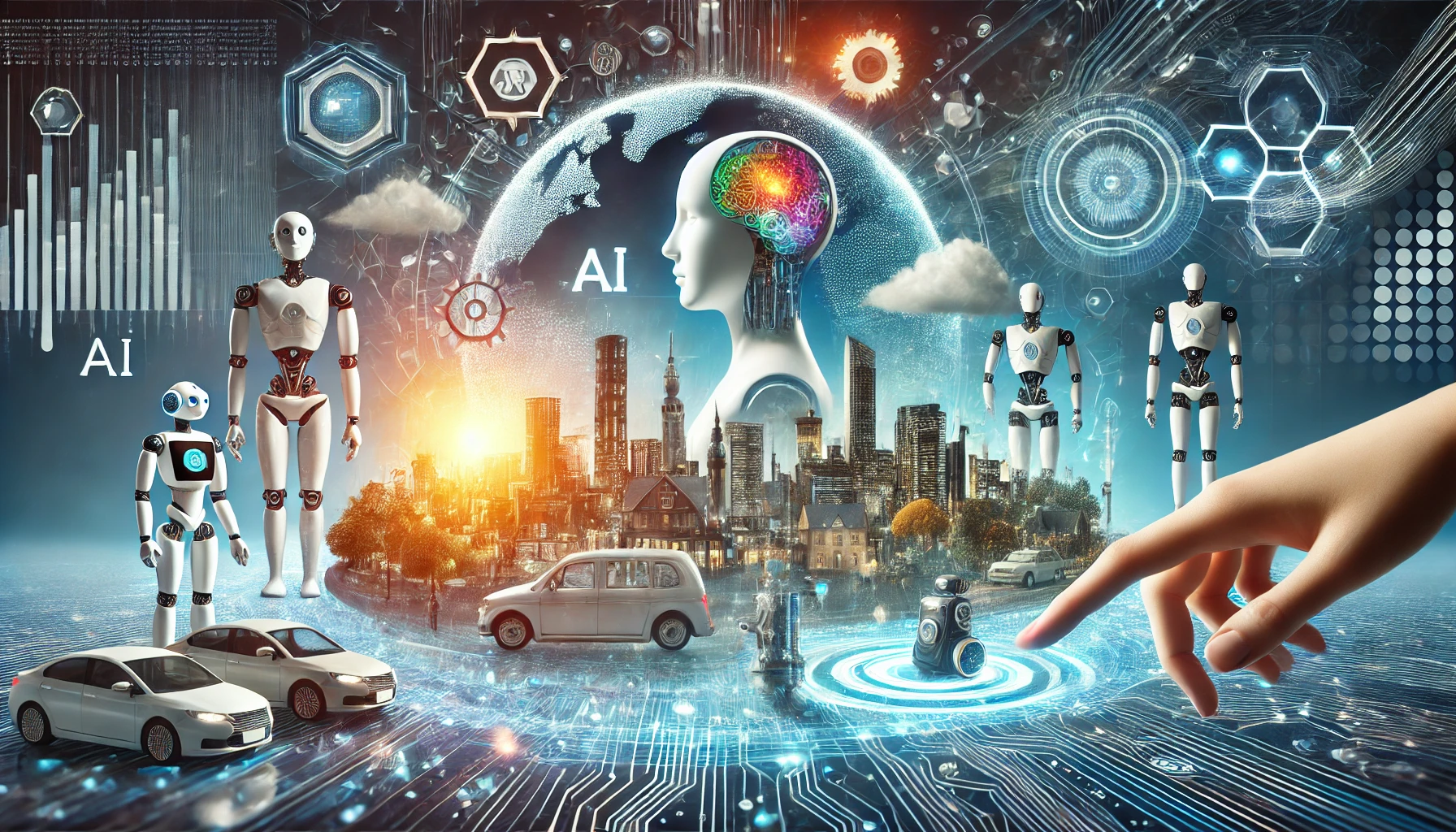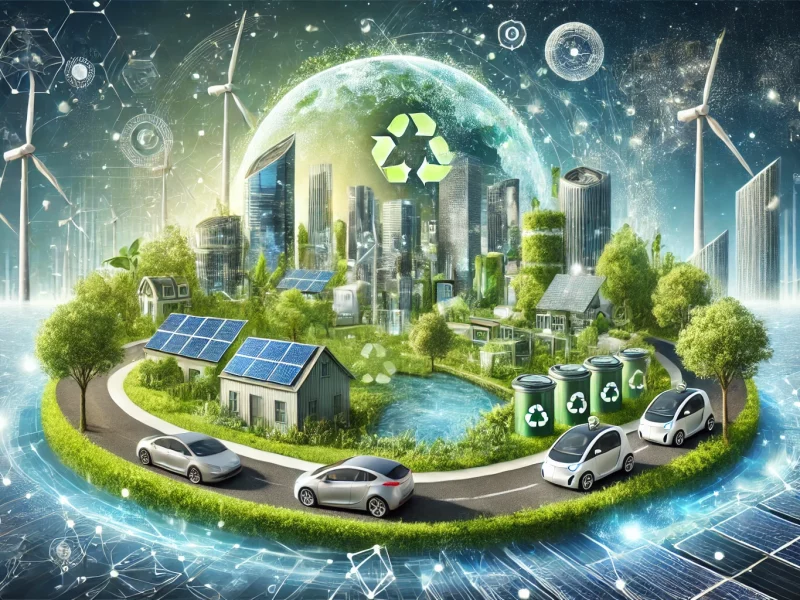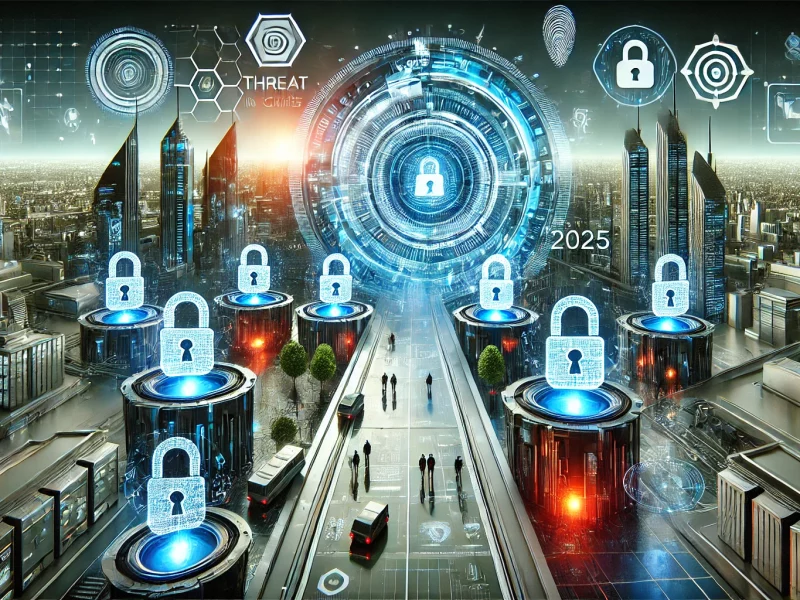Artificial Intelligence (AI) is transforming our world at an unprecedented pace. From virtual assistants and self-driving cars to medical breakthroughs and personalized education, AI is revolutionizing industries and reshaping the way we live and work. As we move into the next decade, AI is expected to become even more integrated into our daily lives, offering both incredible opportunities and significant challenges.
This article explores how AI will shape our world in the next ten years, highlighting key advancements, potential risks, and the impact AI will have on industries and society.
1. AI’s Rapid Evolution: Where We Stand Today
AI is already making a significant impact in various fields, and its capabilities continue to expand. Current advancements include:
- Machine Learning (ML) and Deep Learning – AI systems can now analyze vast amounts of data, recognize patterns, and make predictions with high accuracy.
- Natural Language Processing (NLP) – AI-powered chatbots, virtual assistants, and translation services have made human-AI communication more natural.
- Computer Vision – AI can now recognize faces, objects, and even emotions, leading to innovations in security, healthcare, and automation.
- Autonomous Systems – Self-driving cars and drones are becoming more reliable, reducing the need for human intervention in transportation and logistics.
These advancements set the stage for even more profound changes in the next decade.
2. AI in Everyday Life: What to Expect in the Next Decade
AI is expected to become an even greater part of our daily lives, influencing how we work, interact, and make decisions. Here are some ways AI will shape everyday experiences:
2.1. Smarter Virtual Assistants
AI-driven personal assistants like Siri, Alexa, and Google Assistant will become more sophisticated. Future improvements may include:
- Context-aware conversations, making virtual assistants feel more human-like.
- Personalized recommendations based on real-time data and user preferences.
- Advanced multitasking capabilities, allowing users to handle complex requests effortlessly.
2.2. AI in Healthcare
AI has the potential to revolutionize healthcare, improving diagnosis, treatment, and patient care. Expected developments include:
- AI-powered early disease detection, identifying illnesses before symptoms appear.
- Robotic-assisted surgeries, increasing precision and reducing recovery time.
- AI-driven drug discovery, accelerating the development of new medicines.
AI-driven healthcare solutions could help save millions of lives by providing faster, more accurate diagnoses and treatments.
2.3. AI and Smart Cities
AI will play a crucial role in urban planning and smart cities, improving infrastructure and quality of life. Innovations may include:
- AI-powered traffic management, reducing congestion and optimizing transportation routes.
- Automated waste management systems, leading to cleaner and more sustainable cities.
- AI-enhanced public safety, using predictive analytics to prevent crimes and respond to emergencies efficiently.
Smart cities will leverage AI to create safer, greener, and more efficient environments for residents.
2.4. AI in Education
AI is set to personalize education, making learning more accessible and effective. Future advancements include:
- AI tutors, providing students with customized lessons based on their learning pace.
- Automated grading systems, reducing teachers’ workloads and improving feedback.
- Virtual reality (VR) and AI-powered simulations, enhancing hands-on learning experiences.
AI-driven education platforms will help bridge learning gaps and offer personalized instruction to students worldwide.
3. AI’s Impact on the Workforce: Opportunities and Challenges
AI is expected to reshape the job market, creating new opportunities while also displacing certain roles.
3.1. Job Creation
While AI may automate repetitive tasks, it will also generate new job opportunities in areas such as:
- AI development and maintenance.
- Data science and cybersecurity.
- AI-driven creative industries, including content generation and design.
AI is not just replacing jobs—it is transforming how we work and creating entirely new career paths.
3.2. Job Displacement and Reskilling
Many traditional roles will change as automation increases. Sectors likely to be affected include:
- Manufacturing – AI-powered robots will handle repetitive production tasks.
- Retail and customer service – AI chatbots and self-checkout systems will reduce the need for human workers.
- Transportation – Self-driving vehicles may replace human drivers in logistics and ride-sharing services.
To adapt to these changes, reskilling and upskilling programs will be essential. Governments and businesses must invest in AI education to ensure workers can transition to new, tech-driven roles.
4. Ethical Considerations and AI Regulation
As AI becomes more powerful, ethical concerns and regulatory challenges must be addressed.
4.1. Bias in AI
AI systems are only as unbiased as the data they are trained on. Challenges include:
- Racial and gender bias in hiring algorithms.
- Unfair credit scoring systems that disadvantage certain groups.
- Algorithmic bias in law enforcement, leading to discriminatory practices.
To combat bias, developers must ensure diverse and ethical AI training data and improve transparency in AI decision-making.
4.2. AI and Privacy Concerns
AI’s ability to analyze vast amounts of personal data raises concerns about privacy and surveillance. Future regulations may focus on:
- Stronger data protection laws, ensuring users’ personal data is safeguarded.
- Ethical AI usage in marketing, preventing companies from exploiting consumer information.
- Government oversight, ensuring AI is used responsibly in law enforcement and security.
4.3. The Risk of AI Becoming Too Powerful
While AI has many benefits, concerns about AI surpassing human intelligence (Artificial General Intelligence, AGI) are growing. Experts warn that:
- Uncontrolled AI development could lead to unintended consequences.
- Malicious use of AI could enable cyberattacks, deepfakes, and misinformation campaigns.
- Lack of accountability in AI decision-making could lead to ethical dilemmas.
To mitigate risks, global cooperation is needed to develop regulations and ethical AI frameworks.
5. The Next Decade: How to Prepare for an AI-Driven Future
With AI set to transform society, individuals and businesses must prepare for the future.
5.1. Embracing AI Education
Learning about AI and its applications will be crucial. Ways to prepare include:
- Taking online AI courses in machine learning, data science, and automation.
- Staying updated on AI trends through research and industry news.
- Encouraging AI education in schools and universities to equip future generations.
5.2. Ethical AI Advocacy
Consumers and policymakers must advocate for responsible AI development by:
- Supporting transparent AI policies that prioritize fairness and accountability.
- Encouraging companies to adopt ethical AI practices in hiring, lending, and decision-making.
- Promoting AI safety research to minimize risks associated with automation.
5.3. Adaptability and Innovation
Businesses and individuals should embrace AI-driven innovation by:
- Exploring how AI can enhance productivity in different industries.
- Investing in AI-powered tools to streamline workflows.
- Encouraging a culture of innovation and digital transformation.
Conclusion
AI will play an increasingly transformative role in our world over the next decade, bringing both exciting possibilities and significant challenges. From healthcare and education to smart cities and automation, AI will reshape industries, improve lives, and redefine the way we work.
However, with great power comes great responsibility. Ethical AI development, education, and regulation will be essential in ensuring that AI benefits all of humanity rather than a select few.
As we move forward, the key to thriving in an AI-driven world is adaptability, continuous learning, and responsible innovation. The future of AI is not just about machines—it’s about how we, as humans, choose to shape and integrate AI into our lives.


